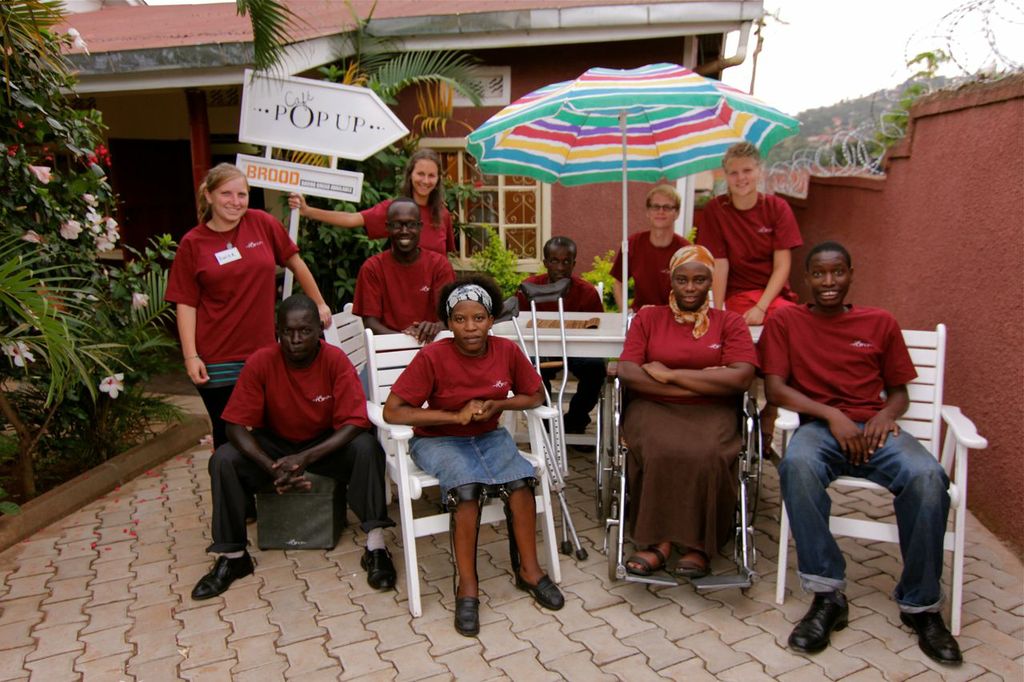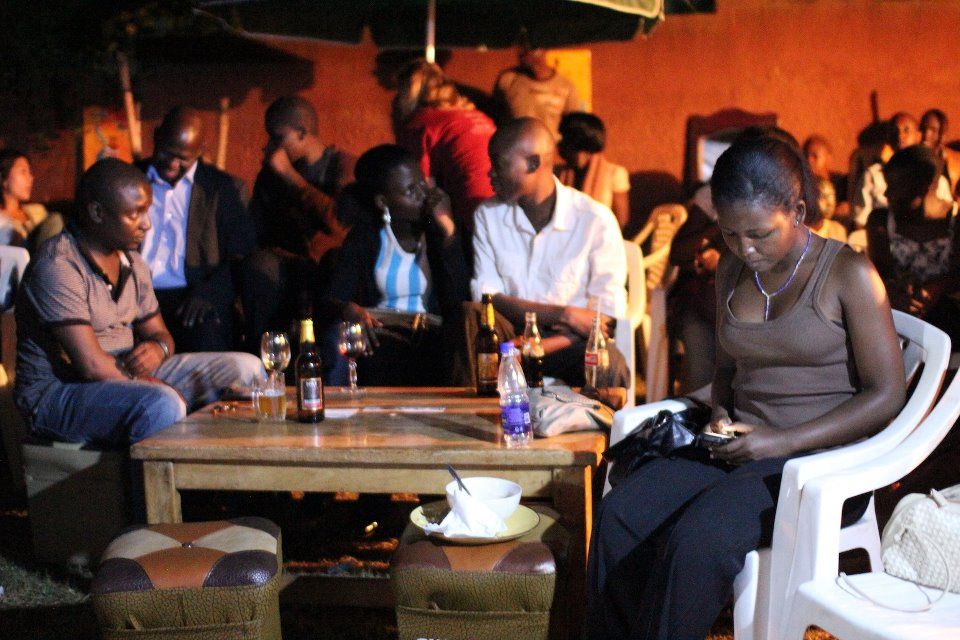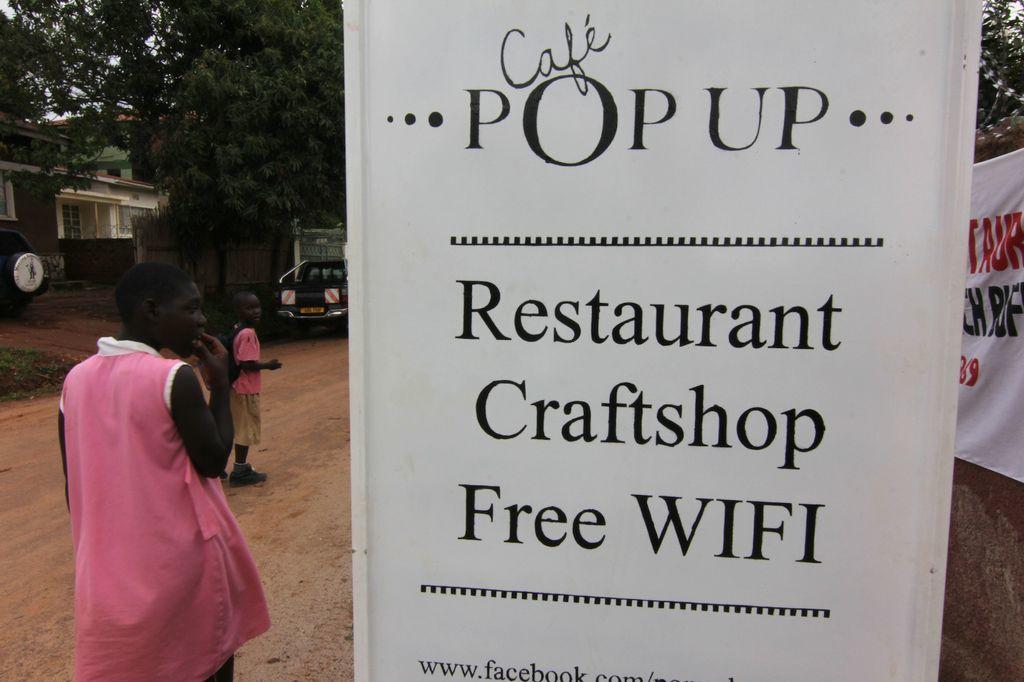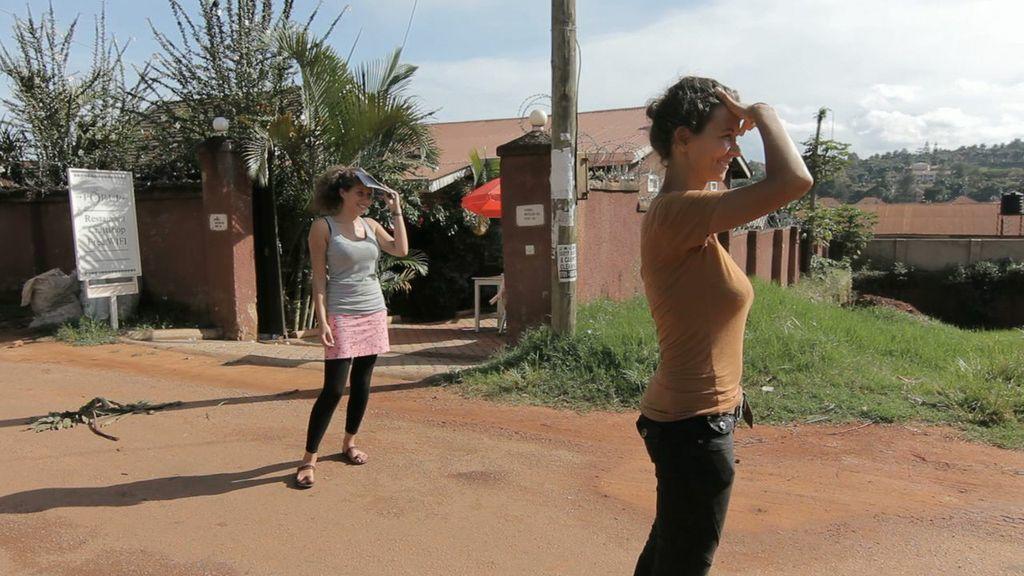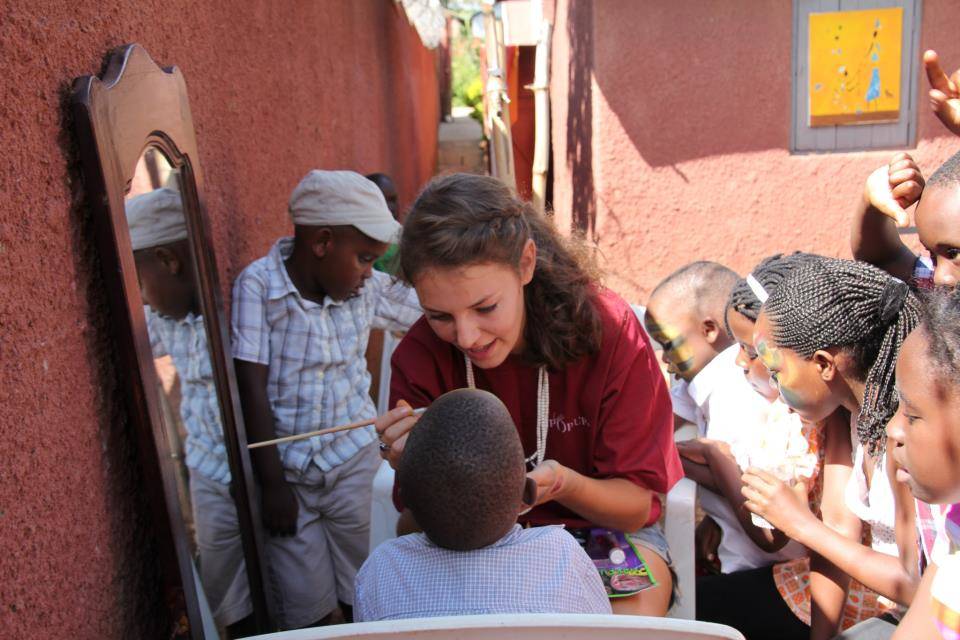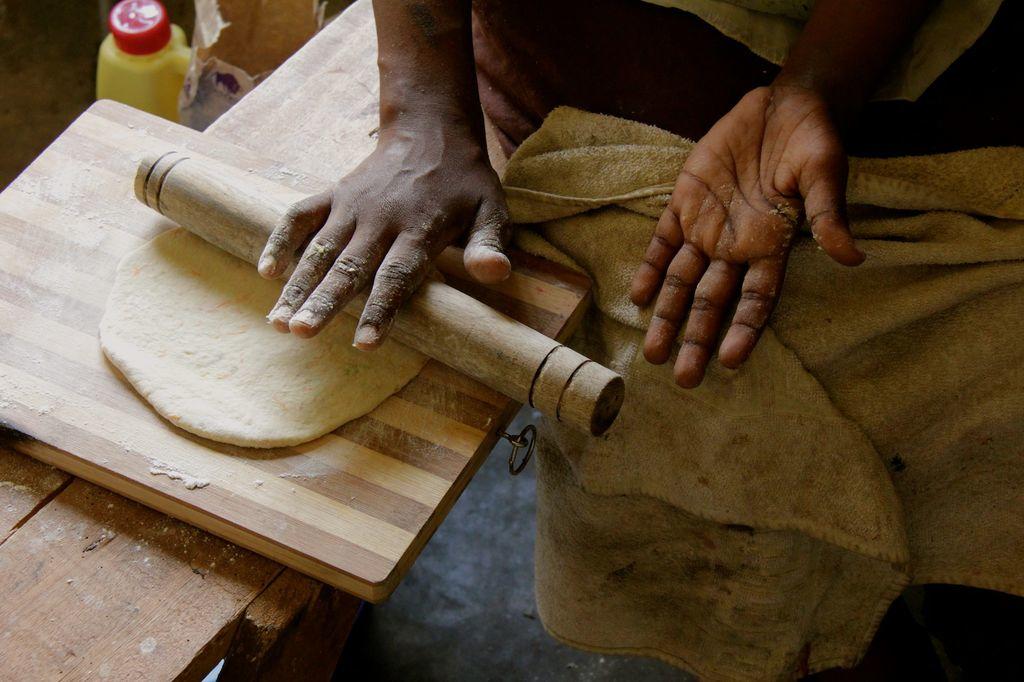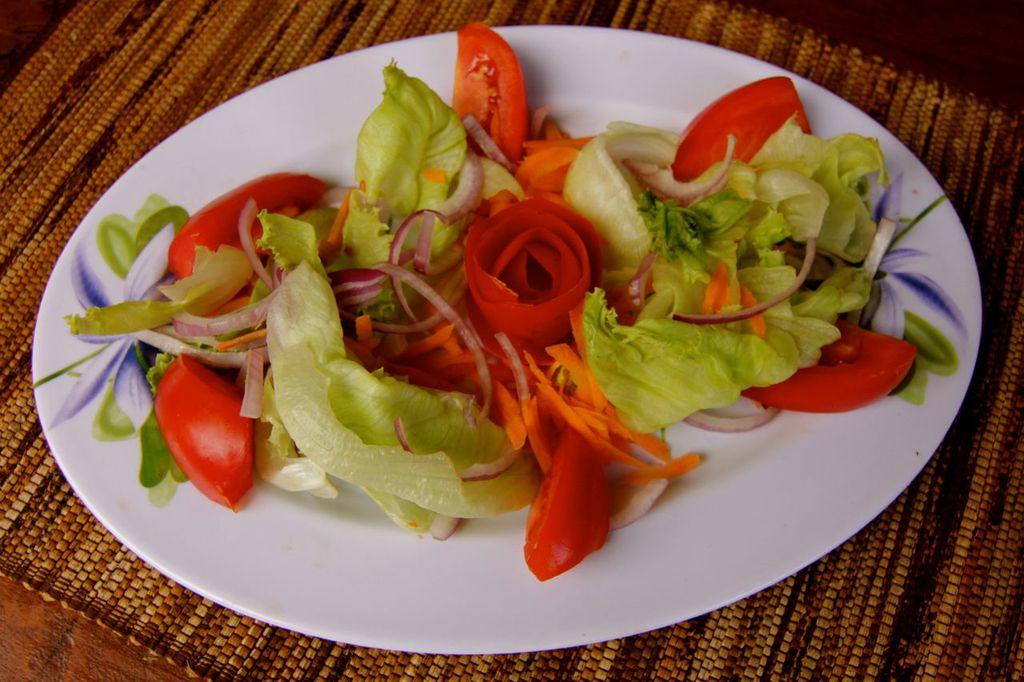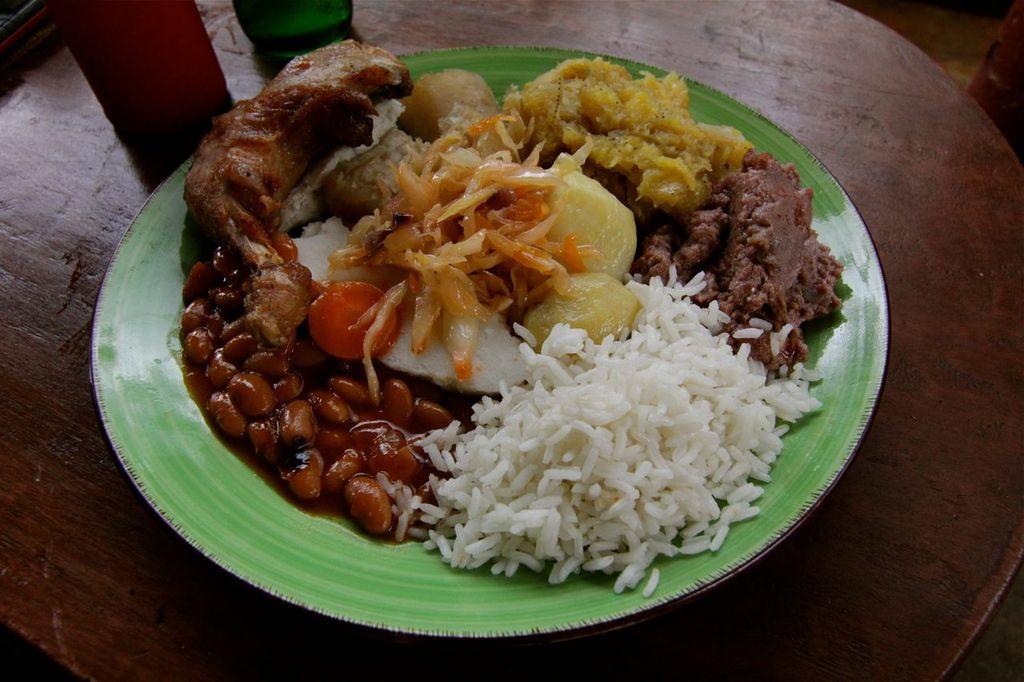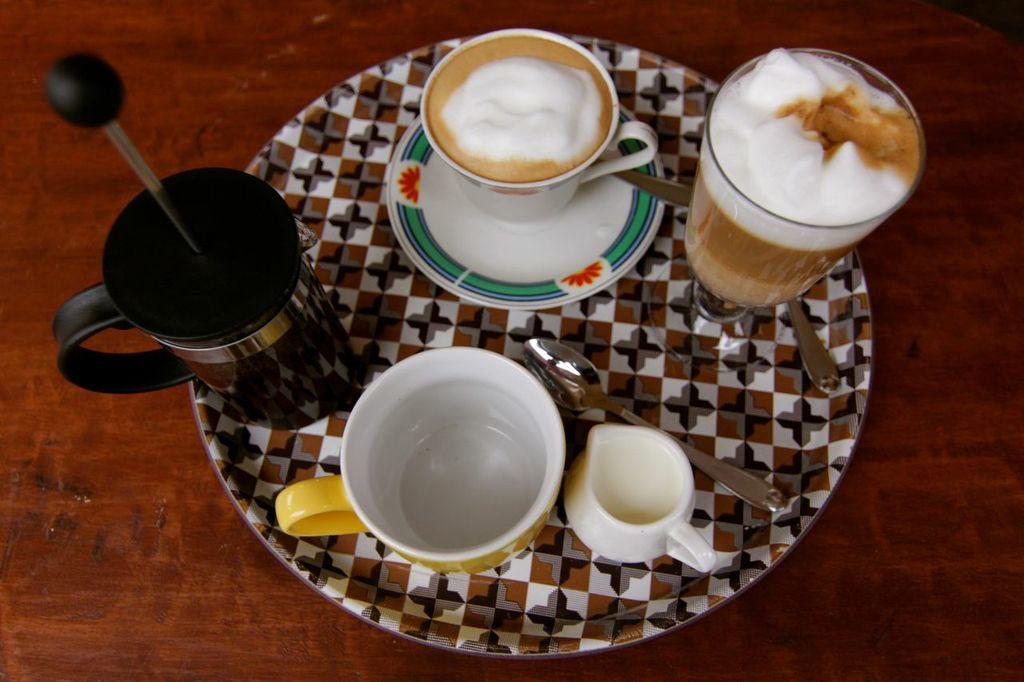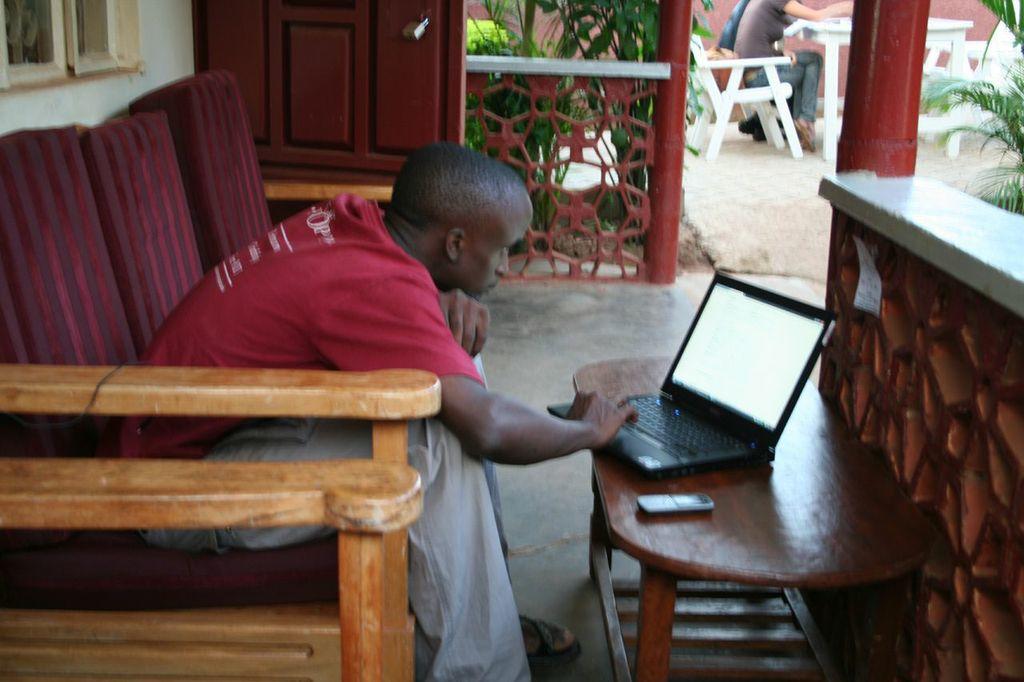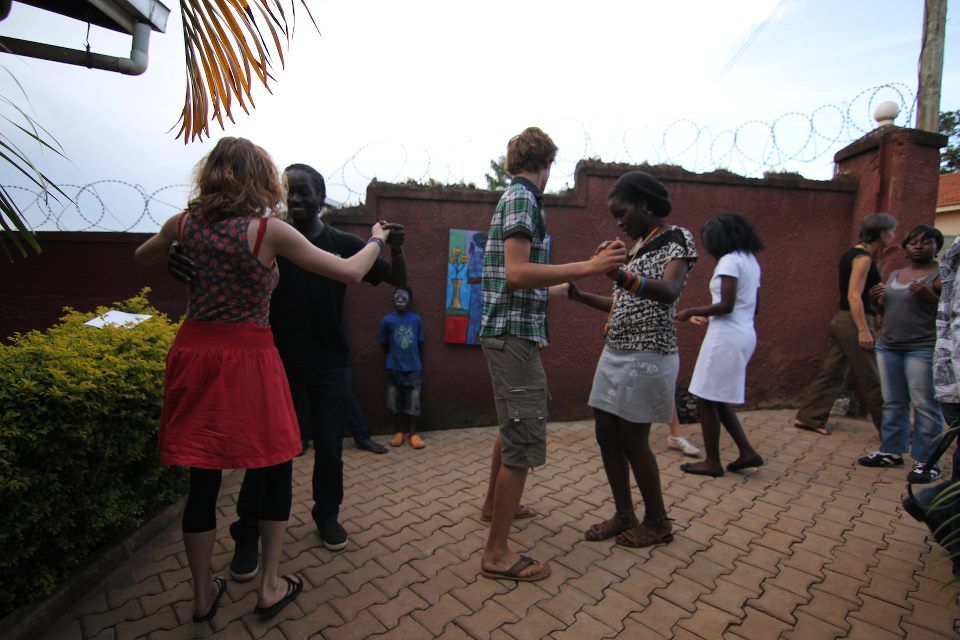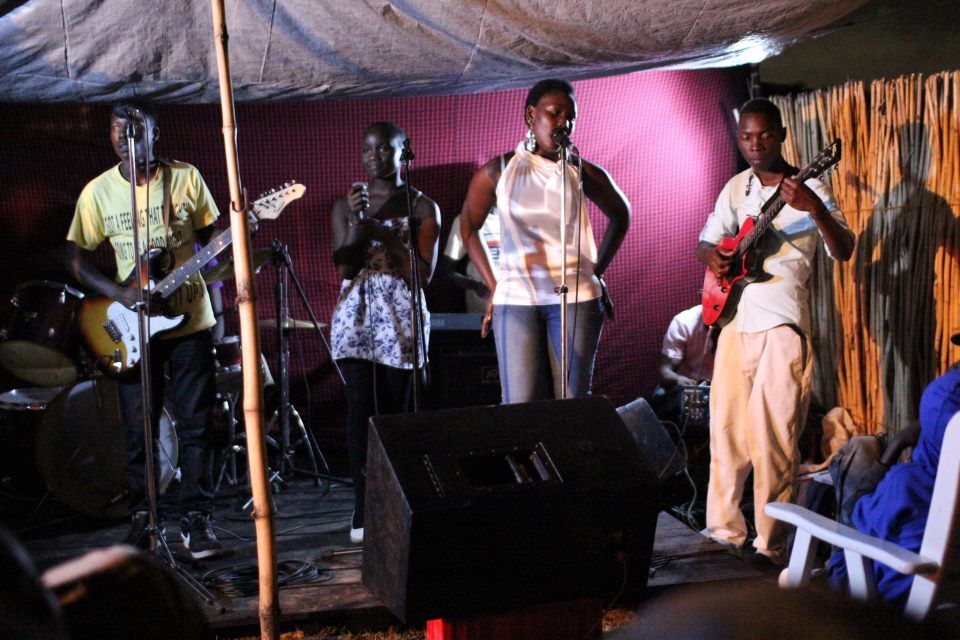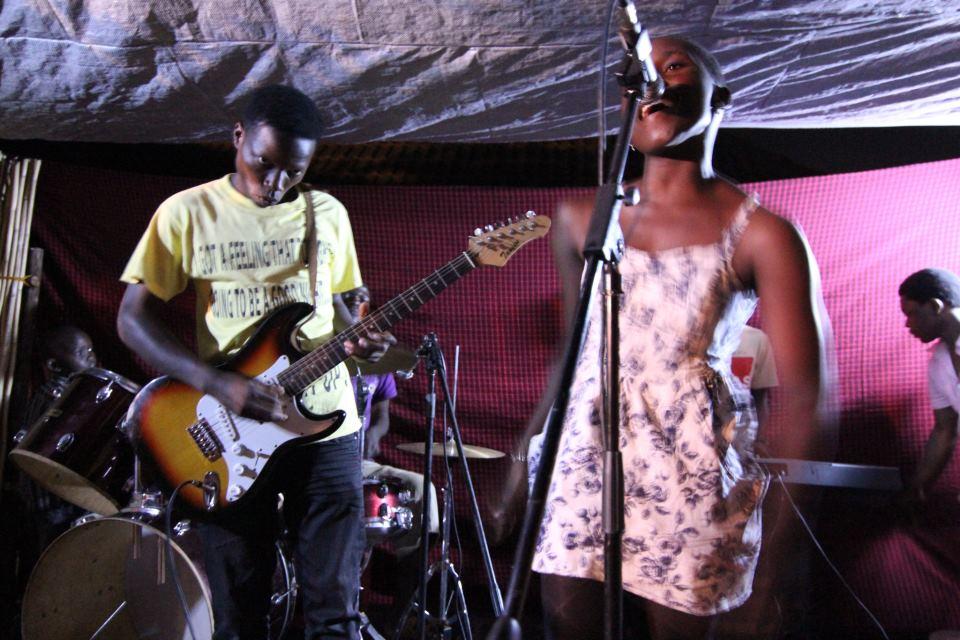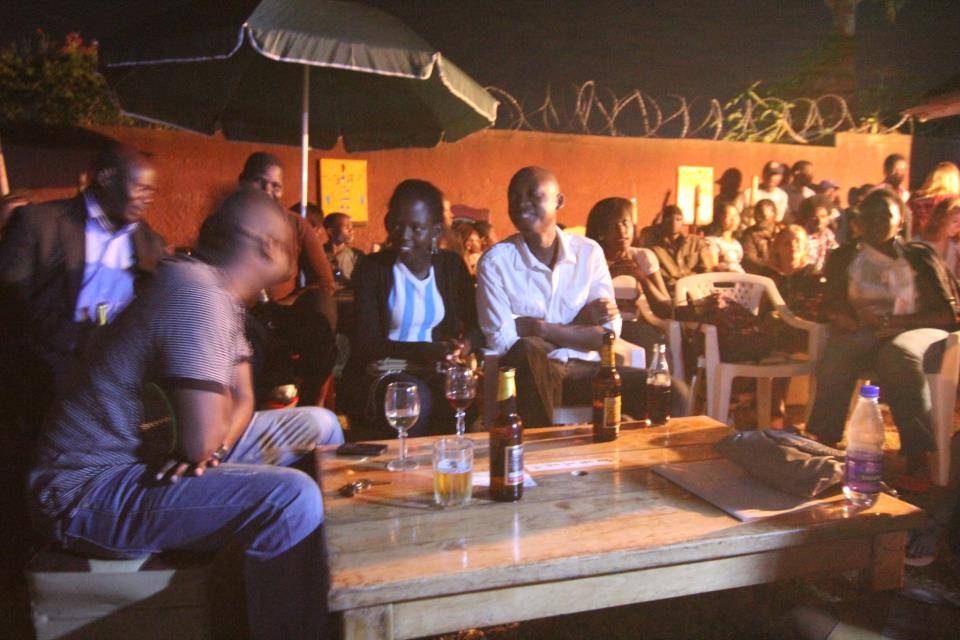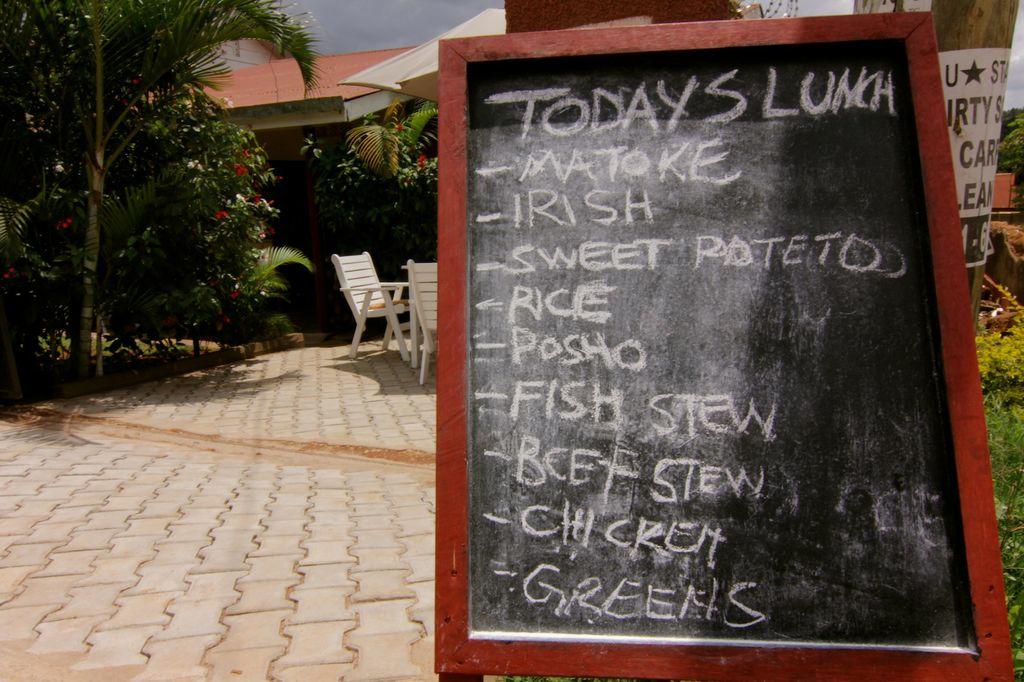24.06.13
estonian world: Estonians popping up in Uganda – the story of Pop Up Kampala
One would not expect to find an Estonian-run café in East Africa. Yet, it turns out that there is at least one — Pop Up Café in Kampala, Uganda. A cafeteria with a small garden in Ntinda area of Kampala, where people can enjoy self-roasted coffee and delicious meals. But what makes this place more unique is the fact that it mainly employs people with special needs — Pop Up Café is a social entrepreneurship-based cafeteria that empowers Uganda’s disabled youth by offering them their first job opportunity.
The cafeteria was started by two visionary volunteers from Estonia together with NGO Mondo and the start-up money was gathered from the people of this small North-European nation, donation by donation.
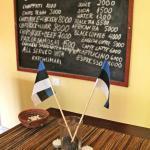 We caught up with Aliine Lotman, one of the co-ordinators of the project and currently running it in Kampala. Aliine is a young Estonian with a background in social and cultural anthropology, more narrowly she has been studying the different cultural meanings of food and edibility. Her work so far has been with (global) education and development issues with NGO Mondo and the Estonian National Commission for UNESCO.
We caught up with Aliine Lotman, one of the co-ordinators of the project and currently running it in Kampala. Aliine is a young Estonian with a background in social and cultural anthropology, more narrowly she has been studying the different cultural meanings of food and edibility. Her work so far has been with (global) education and development issues with NGO Mondo and the Estonian National Commission for UNESCO.
Aliine, what prompted you to move to Uganda?
The story begun almost two years ago when I was working for the Global Education Centre at NGO Mondo in Tallinn. Johanna Helin, my boss at the time, told me about a project that back then seemed more than crazy: there was some guy called Jüri Saarma who wanted to open a cafeteria in Uganda that would employ people with special needs. Johanna was asking me if I would be interested to take on the project, to fly to Uganda in a few months’ time and create this cafeteria from scratch. Of course both she and Jüri would support me from Estonia, but everything else I would figure out by myself in Kampala (the capital of Uganda).
Fortunately at the time I was still busy with my university studies so I passed the opportunity. It was fortunate because the person who finally flew to Uganda to start the project was the person exactly right for the task — Siisi Saetalu. It took Siisi nine months to start the cafeteria, to find the staff and premises and to train our staff members with regards to cooking, serving, roasting coffee beans etc. During the nine months I kept reading Siisi’s blog, following the developments and the growth of this idea that at first had seemed insane — but with time came to seem as one of the most sensible social enterprises I have heard of. So when Siisi returned to Estonia and NGO Mondo started looking for a new volunteer to take over the management of the cafeteria, it seemed natural for me to apply for the job. Three months later, here I am, sitting on the porch of Pop Up Café, working through our free WiFi connection and drinking one of the best iced coffees in town.
I
I
So what exactly are you trying to achieve?
The main idea of Pop Up Café is to be something of a springboard from where young people with special needs could acquire their first working experience in order to find work elsewhere and become independent citizens who contribute to the society as much as anybody else. Another big aim that we have is to raise awareness in Uganda — it is important for the society to see that people with special needs are able and willing to be employed and are a contribution to an enterprise, not a burden. Unfortunately in many parts of Uganda, people with special needs are treated as a punishment from God and in the bigger scale of things we aim to change this prejudice.
What are the challenges that you have come across to so far?
The main challenge is to find our own place in the competition of Kampala city to ensure a revenue that would make the project self-sustainable and enable to become independent of donations made by Estonians. At the moment we are trying to really push our marketing efforts to make Pop Up known all over the city as a place where anyone can come and relax in a cosy atmosphere, drink fantastic Ugandan coffee and support our cause.
I
I
What is life generally alike in Uganda?
Uganda is a country that is very hard to put into words. I can only say that it is a place that everyone should visit at least once. Of course the country faces many challenges and not everything is as perfect as it could be, but regardless of this, it’s a place that charms immediately and becomes almost a second home — even for cold and reserved Estonians (Aliine laughs).
Has anyone heard about Estonia over there and is there any idea or experience from Estonia that you could transfer to Uganda?
Most Ugandans have never heard of Estonia — but at the same time most Estonians would probably have a trouble to pinpoint Uganda on a map as well. However, there are still many coincidences: for example, the owner of the house where Pop Up Café is located, has been to Tallinn twice — as he was once a university student in the Soviet Union. And actually there is also a wonderful Estonian family living in Kampala who have been of great help for both me and for the project.
One thing we have “transferred” is our free WiFi service — when the cafeteria was started last year, we were one of the very few who offered a free WiFi connection to their customers. Although the trend has spread to other parts of the town as well, we still remain with many customers who appreciate us exactly because of the possibility to just come and sit down with your laptop, without any time limit or costs to the internet: just like it is in most cafeterias in Tallinn.
There are many similarities I see between Estonia and Uganda — which means that the same amount of ideas and experiences I “import” from Estonia, I will probably “export” back to Estonia.
I
I
What would you say to those people back home who point out that there are many unsolved social problems in Estonia — why would they want to support projects in other countries, such as this one in Kampala?
What are your plans for the future?
First of all, the main goal is to get the cafeteria to earn a profit (which we can then invest in the community) and to find a Ugandan manager who would take over the leadership when I return to Estonia. Apart from Pop Up Café I’m planning to continue with food studies and maybe in the future I could also contribute to a cafeteria with similar aims in Estonia. Otherwise — revisiting Uganda is definitely a part of my future plans.
I
I
I
I
I
I
I
I
I
I
I
I
I
I
I
You can follow and support Pop Up Kampala here: https://www.facebook.com/Ugandakohvik
Photos: Kullar Viimne
http://estonianworld.com/life/estonians-popping-up-in-uganda-the-story-of-pop-up-kampala-video/
